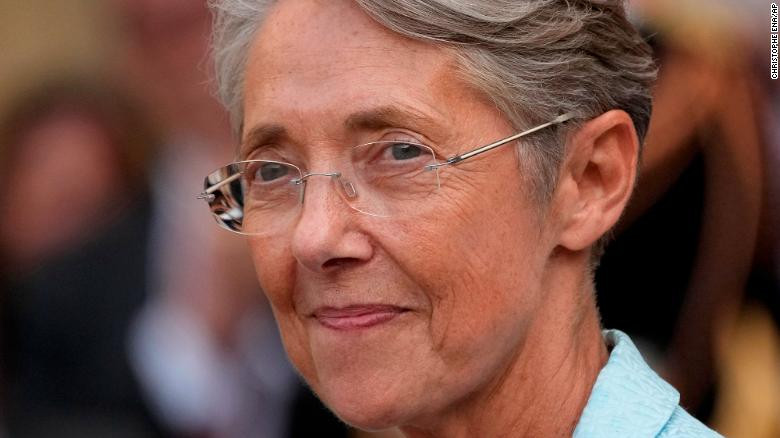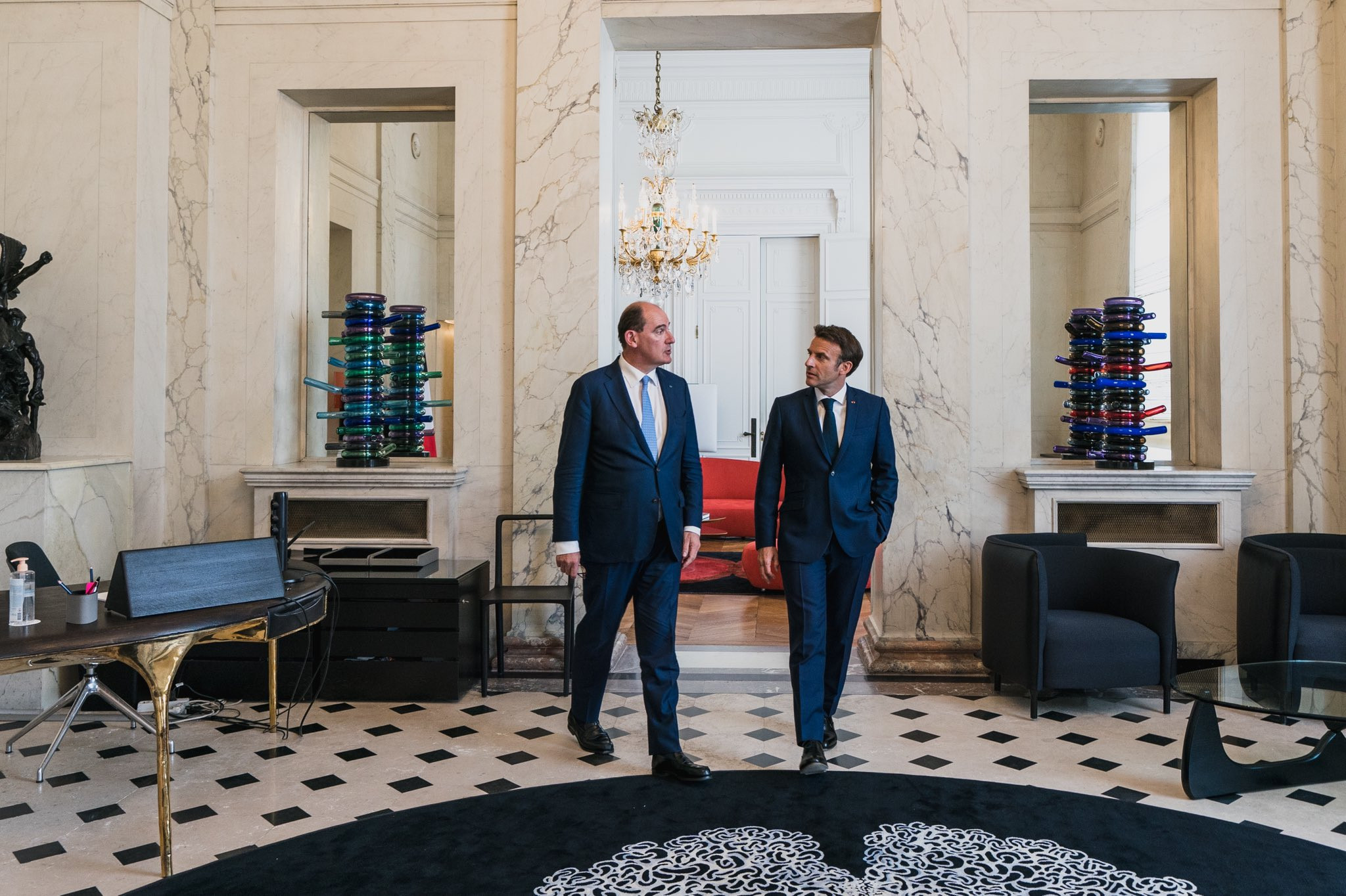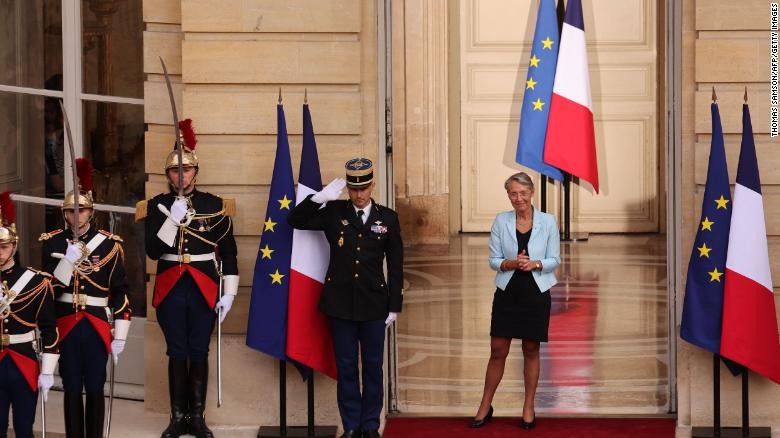Who is the new Prime Minister of France?
(Baonghean.vn) - Moderate politician Elisabeth Borne was appointed Prime Minister of France on May 16, becoming the second woman to hold this important position in French history.
 |
| Ms. Elisabeth Borne at the inauguration ceremony of French Prime Minister on May 16. Photo: AP |
Borne, 61, served as Labour Minister in the previous government and now succeeds Jean Castex, after he resigned earlier in the day.
Shortly after appointing Ms. Borne, French President Emmanuel Macron wrote on Twitter: "Economy, health, education, full employment, the restoration of democracy, Europe and security: together, with the new government, we will continue to act tirelessly for the French people."
The news comes shortly after Macron beat far-right candidate Marine Le Pen in a two-way race to be re-elected as French president last month. France is due to hold parliamentary elections in June.
Who is Elisabeth Borne?
Ms Borne gave a speech shortly after her appointment, expressing her emotion at being chosen for the highest position ever held by a woman in France's political leadership.
“I want to dedicate this to all the little girls, telling them, ‘Follow your dreams!’. Nothing can stop the fight to affirm the position of women in our society,” said Ms. Borne.
Ms. Borne is the second woman in French history to hold the position of Prime Minister, after former Prime Minister Edith Cresson, who served from 1991 to 1992 under President Francois Mitterrand.
As France's labor minister since 2020, Ms. Borne implemented changes that made it harder for the unemployed to receive benefits and reduced monthly payments for some unemployed people, drawing criticism from labor unions and the left.
In 2018, as Transport Minister, Ms Borne faced a major strike from the SNCF rail company over plans to open up competition in the train network and end the right to retain jobs and lifetime benefits for new hires. She eventually managed to get the bill passed.
Having never held elected office, Ms. Borne began her career close to the traditional left. Notably, she served as an adviser to Socialist politician Ségolène Royal, and later served as Ecology Minister under President Francois Hollande.
She became CEO of the state-owned transport company RATP, which operates the Paris metro, in 2015. She joined Mr Macron's centrist party in 2017, serving as transport minister and then minister for ecological transition in President Macron's first government.
 |
| President Macron accepted the resignation and thanked former Prime Minister Jean Castex for his contributions. Photo: Twitter |
Why did former Prime Minister Castex resign?
Mr. Castex’s resignation was a surprise move after Mr. Macron’s re-election last month. According to a statement from the Elysée Palace, on May 16, Mr. Castex went to the presidential palace to officially submit his resignation, which was then “accepted” by Mr. Macron.
In France, it is common for presidents to have more than one prime minister during their term. On Monday, Mr. Castex said he would “continue to serve the country” but would “step aside by leaving national politics.”
What content will Ms. Borne prioritize?
The new French Prime Minister's first task will be to ensure that Mr Macron's centrist party and its allies do well in next month's French parliamentary elections.
Scheduled to be held in two rounds, the election will determine which group holds the majority of seats in parliament, thereby having the decisive say over the Senate in the legislative process of the Fifth Republic.
Mr Macron also promised a bill to tackle rising living standards in France, amid soaring food and energy prices. The bill will be drafted by the new government and is expected to be presented soon after the results of the parliamentary elections.
 |
| Ms. Borne is the second woman in French history to be appointed to this important position. Photo: AFP |
If Mr Macron's party wins a majority in the French parliament, Ms Borne will then need to ensure that the president's promised pension changes are legislated, including raising the minimum retirement age from 62 to 65.
These proposed amendments have received widespread criticism from workers, unions and left-wing voters.
In addition, Mr. Macron also promised that the new Prime Minister will be directly in charge of “green planning”, seeking to speed up the implementation of French policies related to climate issues. President Macron pledged to go “twice as fast” in his second term to limit greenhouse gas emissions./.



